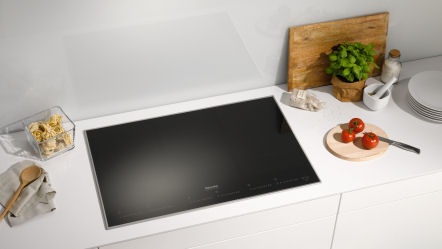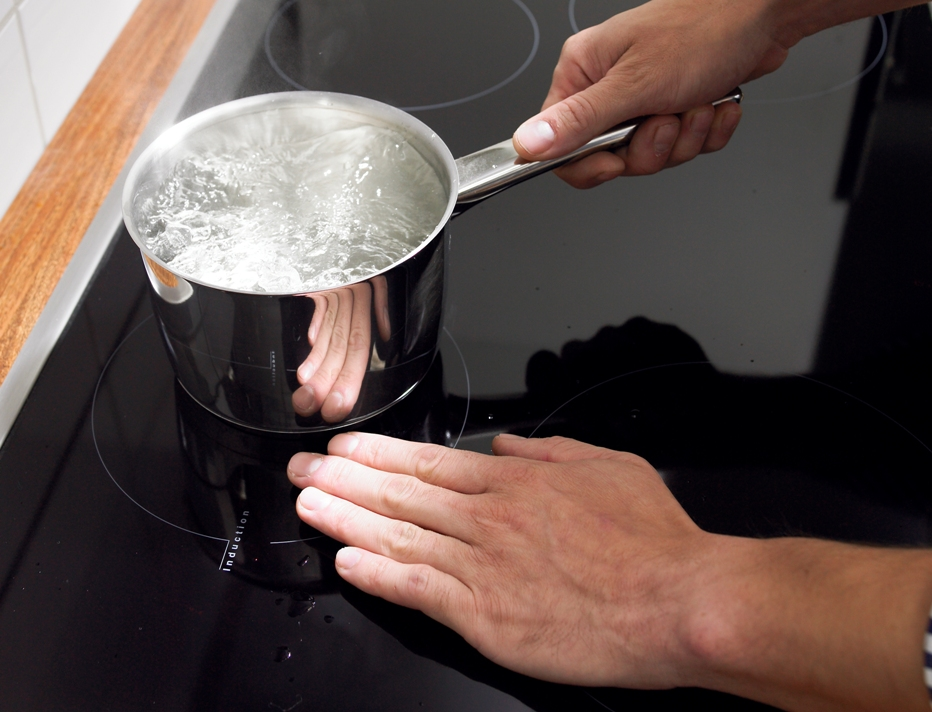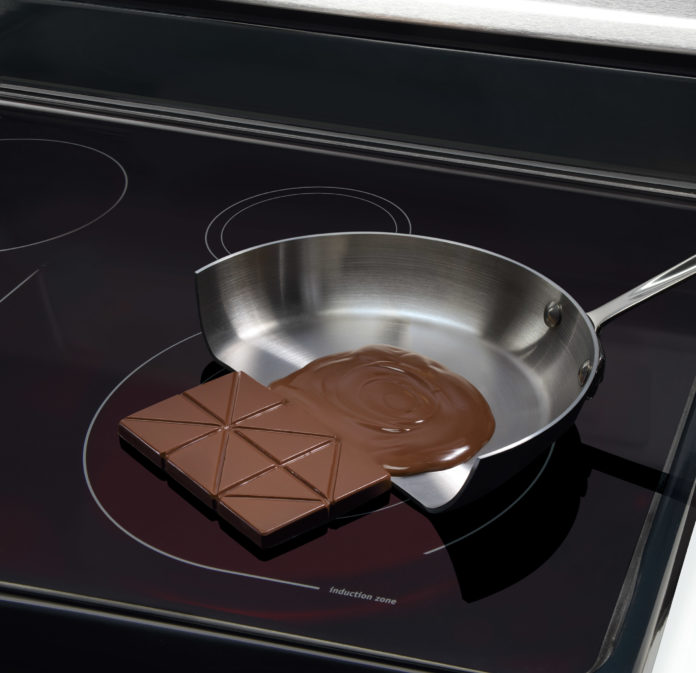Induction cooking in a kosher kitchen
A good idea or a terrible one?
As with all new technology, induction cooking has a lot to offer. However, lets look at this new surface in depth to see if induction can work in a kosher kitchen.

First of all, what exactly is induction? An induction cooktop transfers energy from an electromagnetic field below the glass surface directly to magnetic cookware, causing it to heat up. It essentially cuts out the middleman of first needing to heat a coil and then your pot. As a result, induction cooktops heat food faster and respond to a reduction in temperature quicker than other heat sources.
Pros of Induction
As mentioned above, the main plus of an induction cooking surface is its speed. As an example, it would take around 4 minutes faster to bring 6 quarts of water to a boil over other cooking methods.

Another nice feature is that because the heat transfers directly to the pot, the actual cooktop does not heat up. This would mean less burns and less worry about someone touching an element left on by accident. The burner will only feel slightly hot from heat radiating to it from the pot.
The price of induction cooktops, while once prohibitively expensive has now dropped significantly. Due to more competition in the market, one can now purchase an induction range or burners for only slightly more than comparable gas or electric surfaces.
Cons of Induction
The biggest drawback to an induction cooktop (not related to kashrus) would be that it requires special cookware. Because it works with magnetism as opposed to heat conduction, your pots would need to be magnetized. You can test your existing pots with a magnet to see if it sticks strongly to the bottom. Otherwise you would need to invest in new cookware that is labeled as “induction compatible.”

There are two more small disadvantages to induction burners. There is often a slight “buzzing” sound that gets louder as the temperature rises. Also, you would need to use an analog thermometer when necessary as the magnetism will interfere with a digital one.
Can I put induction in my kosher kitchen?
As a secondary (or possibly dairy) cooking surface in your kitchen – perhaps. As your main burners – a resounding NO.
Why not?
An induction burner does not produce any heat of its own. When turned on it simply activates a magnetic field. Placing a compatible pot onto the element is what gets the heating process started and removing the same pot immediately stops it. This would present a few very major problems according to halacha.
Halachic implications
- Yom Tov: With gas or electric cooktops, one can leave a burner on before Yom Tov and then cook as needed for that Yom Tov. With induction however, leaving a burner on before Yom Tov will be of no use as the cooking connection is only made when the pot is set on the burner. Each time a pot is placed and removed from the burner the current is consequently connected and disconnected. This obviously makes the use of induction cooktops assur for Yom Tov.
- Shabbos: One cannot put a blech on any glass cooktop. Doing so would cause the glass to shatter. Additionally, the blech would interrupt the magnetic connection between the element and the pot.
- Bishul Akum: In a household where there may be a non-Jew doing the cooking, induction cooktops can prove problematic. Leaving a burner on will not produce any heat and therefore cannot be considered starting the cooking process. A Jew would need to place a compatible pot on an activated burner to avoid this problem. Additionally, removing a pot from an induction element fully cuts off the magnetic current. Therefore, if a Jew initially placed a pot on the burner and it was removed for any reason, a Jew would need to re-place it on the element once again. Obviously this presents problems if a Jew will not be around during the entire cooking process.
Now that we have reviewed the halachic issues involved, it becomes clear that an induction cooktop may not be the best choice in a kosher kitchen.
Please feel free to consult your own Rabbinical opinions on any of these issues. The halachic information here was compiled from the star-K, COR, and MK.
Find out more about how we can help you design your new kosher kitchen. If you have any questions regarding this or any or our services please feel free to contact us .
One thought on “Induction cooking in a kosher kitchen”
Hi David,
Yes, if that was the case I believe there would be no halachic issues in using an induction cooktop. The only hurdle would be to purchase the proper magnetic cookware.
Here is the link to the MK article. The part on induction and bishul akum is on page 6.
https://mk.ca/wp-content/uploads/2016/07/newsletter58e.pdf
This is the star-K link. The info on induction is in the last two paragraphs.
https://www.star-k.org/articles/articles/kosher-appliances/467/shattered-dreams/
Let me know if I can be of any further help,
Rivky
Comments are closed